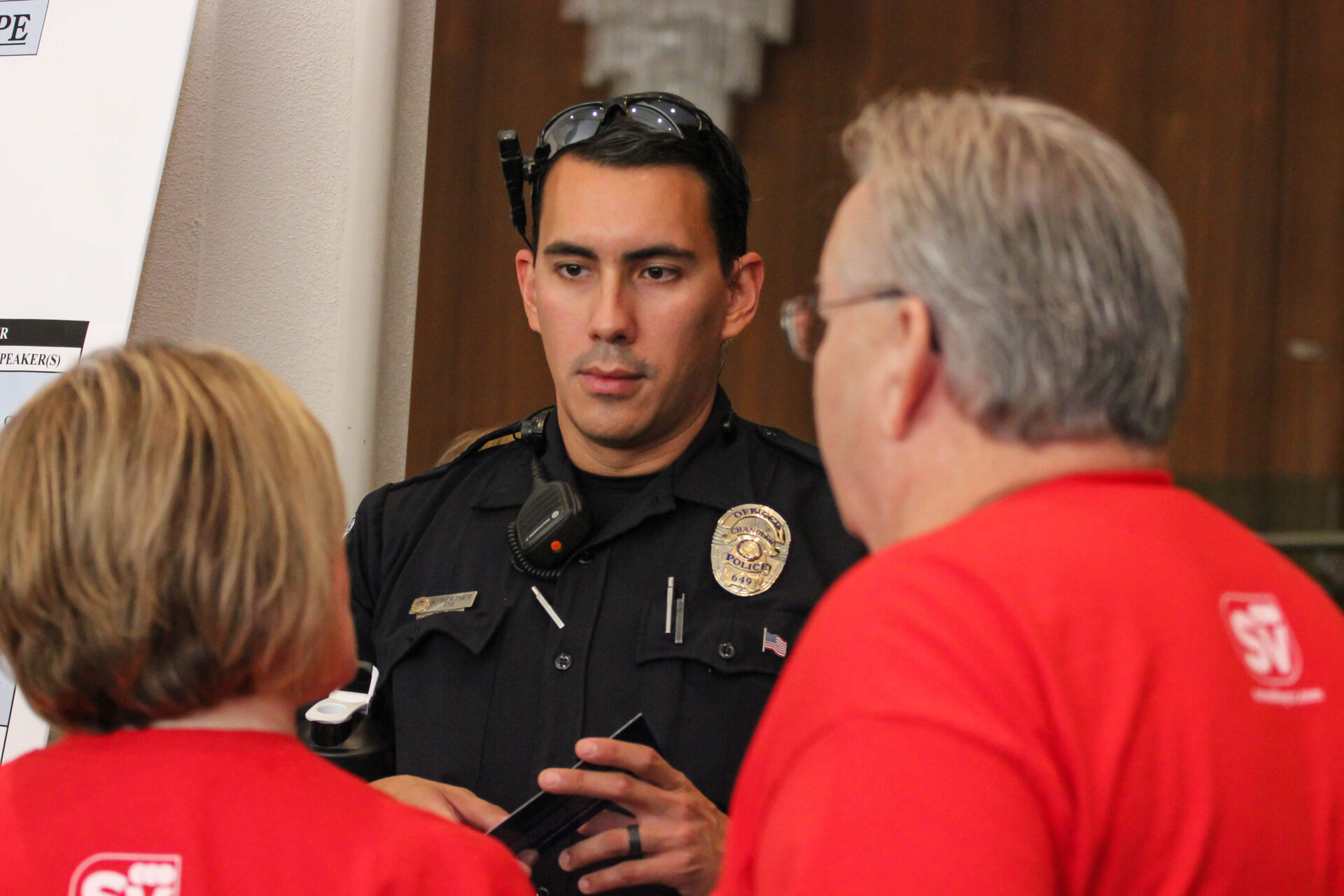
By Joyce Coronel
We may be a modern society awash in digital technology and high-tech medicine, but there’s still a pervasive stigma when it comes to mental illness.
Two Chandler police officers decided to do something about it. They organized a free, daylong event aimed at bringing issues like mental illness, addiction and suicide out of the shadows and into the light.
For those who’ve anguished over the struggles of a loved one’s troubled life, it couldn’t come soon enough.
Officers Melissa Lotz and Loranda Tibble, the driving force behind “A Focus on Understanding and Hope,” held at Chandler Center for the Arts, said their goal was to create awareness and help individuals and their families find resources and support.
More than 45 organizations took part in the affair, including Aurora Behavioral Health, Awakening Recovery and the American Foundation of Suicide Prevention.
So how much of police interaction with the community is fueled by substance abuse or mental health issues?
“We were dealing with so many issues last year, either PTSD or mental health-related—that’s why we came up with the idea,” Lotz said. “It’s out there. It’s big, and people need to recognize it.”
Tibble concurred.
“We’d definitely say an overwhelmingly high number. The average citizen, whatever the number is—I think they would be shocked.”
According to the Arizona Suicide Prevention Coalition, suicide is a leading cause of death in Arizona, with about 800 people taking their lives each year in the state. And as numerous news outlets have reported, there’s also an ongoing crisis involving opiate addiction and overdose.
Arizona ranks second in the nation for deaths from drug overdose.
“We would go out on calls all the time where people had family members who told us they felt so hopeless,” Tibble said.
“They don’t know how to help their family members who were coping with a mental illness. We didn’t really have the resources available to us and we didn’t know what was out there.”
Both officers wanted to get more training in order to help stem the tide.
“We went to a weeklong training to find resources and what we could do to help people and we came back from that with eyes wide open,” Tibble said.
Last year, they put on an event that gathered 25 exhibitors and a guest speaker. This year, the community gathering grew exponentially, with an array of speakers in three halls and dozens of exhibitors. Speakers addressed everything from what substance abuse looks like, to finding hope in the midst of addiction, to overdose prevention, trauma and readjustment for veterans and Post-Traumatic Stress Disorder. Police officers who attended received training credit hours.
“We want people to know where to start to get resources. Once people start accepting it, it almost seems like it’s easier to ask for help,” Tibble said. “There is help available and there are so many resources that people just don’t know about.”
In terms of overcoming stigma, Tibble said that one of the hurdles is the common perception that people suffering from mental illness are likely to pose an extreme danger to others. When Wrangler News brought up the 2011 Tucson shooting by a man with a mental illness who killed six and critically injured U.S. Rep. Gabrielle Giffords, Tibble had this to say:
“A lot of times people assume or think that if you have a mental illness that you’re going to do something drastically big, like the examples you gave. And that’s a very small percentage of people.”
Mental illness covers a wide range of conditions, she said. “There are so many people that suffer with this. Just because you have an addiction or a mental illness does not mean by any means that you’re a bad person.”
Valley Hope, which operates an addiction treatment facility in Chandler, held a march that ended at the doors of the Chandler Center for the Arts just prior to the event organized by Lotz and Tibble.
According to Valley Hope’s website, the march was held “to create awareness around recovery and inspire Champions of Hope within our community.”

